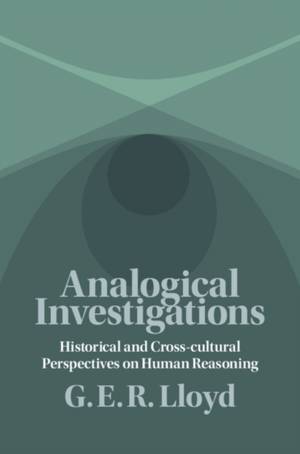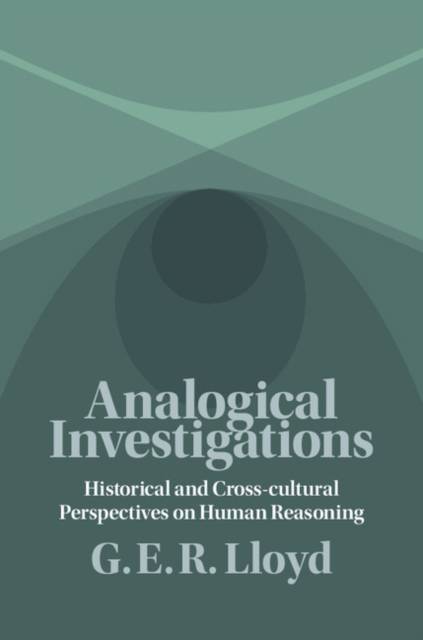
Je cadeautjes zeker op tijd in huis hebben voor de feestdagen? Kom langs in onze winkels en vind het perfecte geschenk!
- Afhalen na 1 uur in een winkel met voorraad
- Gratis thuislevering in België vanaf € 30
- Ruim aanbod met 7 miljoen producten
Je cadeautjes zeker op tijd in huis hebben voor de feestdagen? Kom langs in onze winkels en vind het perfecte geschenk!
- Afhalen na 1 uur in een winkel met voorraad
- Gratis thuislevering in België vanaf € 30
- Ruim aanbod met 7 miljoen producten
Zoeken
Analogical Investigations
Historical and Cross-cultural Perspectives on Human Reasoning
G E R Lloyd
Hardcover | Engels
€ 145,95
+ 291 punten
Omschrijving
Western philosophy and science are responsible for constructing some powerful tools of investigation, aiming at discovering the truth, delivering robust explanations, verifying conjectures, showing that inferences are sound and demonstrating results conclusively. By contrast reasoning that depends on analogies has often been viewed with suspicion. Professor Lloyd first explores the origins of those Western ideals, criticises some of their excesses and redresses the balance in favour of looser, admittedly non-demonstrative analogical reasoning. For this he takes examples both from ancient Greek and Chinese thought and from the materials of recent ethnography to show how different ancient and modern cultures have developed different styles of reasoning. He also develops two original but controversial ideas, that of semantic stretch (to cast doubt on the literal/metaphorical dichotomy) and the multidimensionality of reality (to bypass the realism versus relativism and nature versus nurture controversies).
Specificaties
Betrokkenen
- Auteur(s):
- Uitgeverij:
Inhoud
- Aantal bladzijden:
- 144
- Taal:
- Engels
Eigenschappen
- Productcode (EAN):
- 9781107107847
- Verschijningsdatum:
- 10/09/2015
- Uitvoering:
- Hardcover
- Formaat:
- Genaaid
- Afmetingen:
- 152 mm x 231 mm
- Gewicht:
- 362 g

Alleen bij Standaard Boekhandel
+ 291 punten op je klantenkaart van Standaard Boekhandel
Beoordelingen
We publiceren alleen reviews die voldoen aan de voorwaarden voor reviews. Bekijk onze voorwaarden voor reviews.









